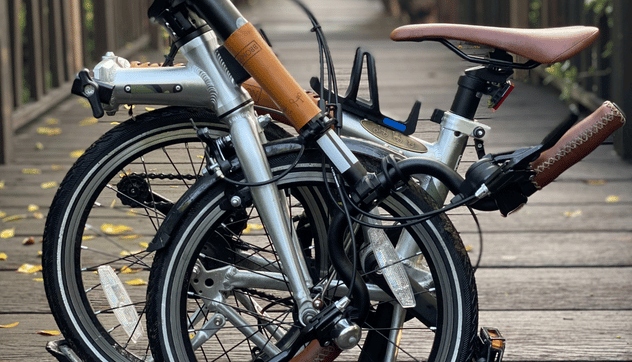Bikes come in all shapes and sizes, from sleek racing bikes to chunky mountain bikes. But how much does a bike actually weigh? This article takes a look at different bike types and gives an estimate of how much each one weighs.
Why is a bike’s weight important?
A lighter bike is generally easier to ride, and can be more fun to ride on technical terrain. A heavier bike is harder to pedal and accelerate, and can be more difficult to control on descents. A bike’s weight is important for many reasons. Additionally, a lighter bike is often more expensive than a heavier bike.
Road Bike Weight
Road bikes are designed to be lightweight and fast, making them ideal for racing and long-distance riding. The average road bike weighs between 18 and 22 pounds, though some racing bikes can weigh as little as 15 pounds. The weight of a road bike is determined by the frame material, the number of gears, and the weight of the wheels and tires.
Mountain Bike Weight
The extra weight is due to features like suspension and wider tires, which make the bike more durable and able to handle rough terrain. Mountain bikes are designed to be ridden off-road, and they typically weigh more than other types of bikes.

The weight of a mountain bike can have a big impact on its performance, so it’s important to choose a bike that’s the right weight for you. If you’re looking for a light mountain bike, you might want to consider a carbon fiber frame, which can shave a few pounds off the weight of the bike. Mountain bikes typically range from about 25 pounds to 35 pounds.
Electric Bike Weight
Here is a look at the average weight of different types of bikes, including electric bikes. Electric bikes are becoming increasingly popular, but there is some debate about how much they actually weigh.

However, electric bikes can be more expensive than traditional bikes, so it is important to consider all of your options before making a purchase. Electric bikes typically weigh between 20 and 30 pounds, making them much lighter than traditional bikes. This can be a major advantage, especially if you need to carry your bike up stairs or over rough terrain.
BMX Bike Weight
The weight of a bike is important for many reasons. Bikes come in all shapes and sizes, and they can weigh quite a bit. For example, a heavier bike is harder to pedal and a lighter bike is easier to pedal. Heavier bikes also tend to be more durable and can handle more abuse than lighter bikes.
But there are some benefits to having a heavier BMX bike. Heavier bikes are usually more stable, which is important when you’re doing tricks and riding at high speeds. That’s a lot of weight to lug around, especially if you’re a smaller rider. BMX bikes are no different, with some models weighing in at over 30 pounds.

If you’re on a budget, you can find some good steel BMX bikes that are still relatively light. These bikes are typically lighter than their steel counterparts, but they’re also more expensive. Just keep in mind that the lighter the bike, the easier it is to pedal. If you’re looking for a lightweight BMX bike, you’ll want to look for one that’s made out of aluminum.
Fat Bike Weight
But there’s also the weight of the rider, the gear, and the accessories. For one, the weight of the bike itself. All of these factors can affect how much a bike weighs. When it comes to bike weight, there are a few different things to consider.
As a result, they usually weigh between 30 and 40 pounds. For example, a fat bike is going to be heavier than a road bike. That’s because fat bikes have thicker tires and a wider frame. They’re also designed for off-road riding, so they tend to be a bit sturdier than other bikes.
And if you’re carrying gear or accessories, that will also add to the weight. Of course, the weight of the rider also plays a role. A heavier rider is going to add more weight to the bike.

But in general, you can expect a fat bike to weigh between 30 and 40 pounds. So, how much does a bike weigh? It really depends on a number of factors.
Beach Cruiser Weight
They typically have wide tires, comfortable seats, and upright handlebars. The average beach cruiser weight is about 30 pounds. Beach cruisers are usually heavier than other types of bicycles, such as road bikes or mountain bikes. Beach cruisers are a type of bicycle that is designed for casual riding.
Folding Bikes Weight
But one thing that all bikes have in common is weight. Just how much does a bike weigh? Bicycles come in all shapes and sizes, and so do their riders.
A mountain bike usually weighs between 20 and 40 pounds. And a folding bike? It depends on the type of bike. A road bike, for example, typically weighs between 15 and 30 pounds.
But there are some ultra-lightweight models that weigh as little as 10 pounds! Folding bikes are designed to be lightweight and portable, so they typically weigh between 15 and 35 pounds.

But keep in mind that the lighter the bike, the more expensive it will be. If you’re looking for a bike that’s easy to carry around, a folding bike is a great option.
Single Speed Bike Weight
This means that the bike has one speed that it can go. A typical single speed bike weighs between 15 and 30 pounds. The weight of a single speed bike can vary depending on the materials that it is made out of and the size of the bike. Single speed bikes are typically lighter than bikes with multiple gears because they have fewer parts. A single speed bike is a bike with a single gear ratio.
Kid’s Bike Weight
The average weight of a child’s bike is between 14 and 20 pounds. The weight of the bike will depend on the size and type of bike. Children’s bikes are designed to be lightweight so that they are easy for kids to maneuver.
Recumbent Bike Weight
A recumbent bike is a type of bike that has a seat that is more like a chair than a traditional bike seat. This seat position puts less stress on the rider’s back and bottom, and many people find it more comfortable than an upright bike. Recumbent bikes come in many different styles, but they all have one thing in common: they are heavier than upright bikes.

The extra weight of a recumbent bike is due to the larger frame and the extra support that is needed for the rider. A typical recumbent bike will weigh about 30 to 40 pounds more than an upright bike. This extra weight can make it more difficult to transport and store a recumbent bike, but it also makes the bike more stable and comfortable to ride.
Other Factors that Influence Bike Weight
There are a few other factors that can influence bike weight, even if only slightly. For example, a bike with carbon fiber wheels will be lighter than one with aluminum wheels. The second is the components used. Finally, the manufacturing process can also affect weight. For example, a titanium frame will generally be lighter than one made from steel. For example, a bike that is hand-built will often be lighter than one that is mass-produced. The first is the materials used in construction.
Frequently Asked Questions
1. How much does a typical bike weigh?
The average weight of a bike is around 27 pounds. However, the weight of a bike can vary depending on the type of bike.
2. How much does a road bike weigh?
A road bike typically weighs between 17 and 20 pounds.
3. How much does a mountain bike weigh?
A mountain bike typically weighs between 24 and 29 pounds.
4. How much does a BMX bike weigh?
A BMX bike typically weighs between 20 and 22 pounds.
5. How much does a kids bike weigh?
The weight of a kids bike depends on the size of the bike. A 12-inch kids bike, for example, typically weighs around 14 pounds.
6. How much does a folding bike weigh?
A folding bike typically weighs between 20 and 30 pounds.
7. How much does an electric bike weigh?
An electric bike typically weighs between 30 and 40 pounds.
8. How much does a cruiser bike weigh?
A cruiser bike typically weighs between 26 and 36 pounds.
9. How much does a beach cruiser bike weigh?
A beach cruiser bike typically weighs between 30 and 40 pounds.
10. How much does a tandem bike weigh?
A tandem bike typically weighs between 35 and 45 pounds.
Final thoughts
A bike’s weight is important, but it’s not the only factor to consider when choosing a bike. The type of bike, the materials it’s made of, and the components all play a role in the overall weight. Ultimately, the best bike for you is the one that feels the best to ride.
